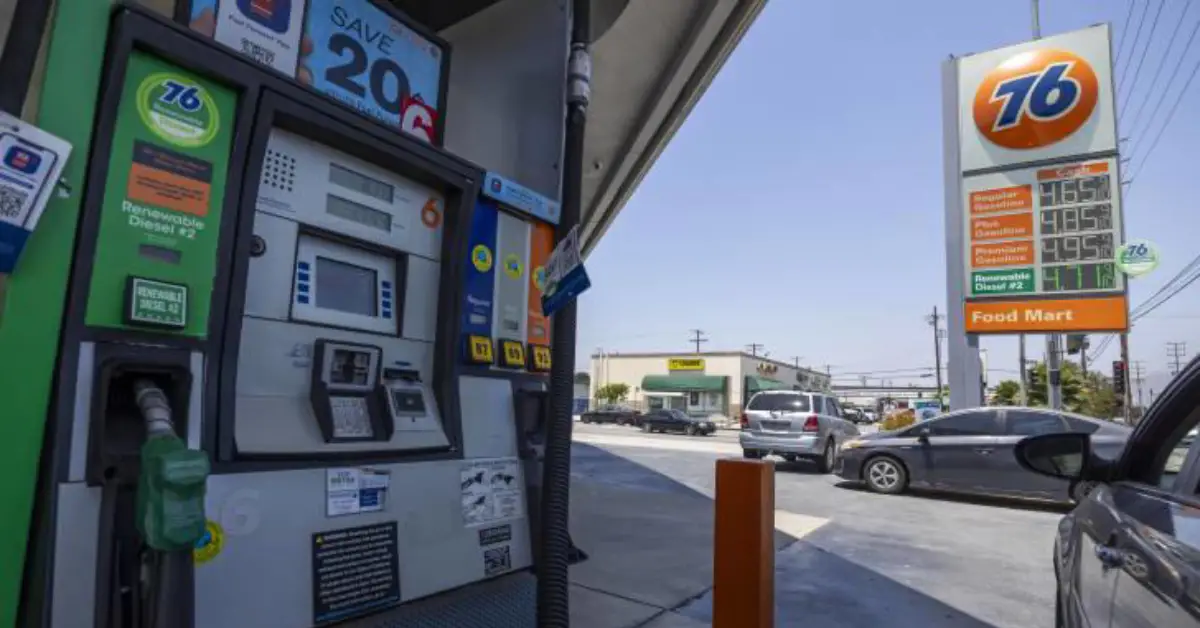California drivers may soon face a serious pinch at the pump, with gas prices projected to rise dramatically in the coming years. According to recent forecasts and ongoing discussions among state energy experts, California could see gas prices hitting a staggering $8 per gallon by 2026. The warning comes amid growing concerns over market pressures, environmental policies, and infrastructure changes that may lead to higher fuel costs for consumers.
Currently, California already has some of the highest fuel prices in the country, often sitting at least a dollar higher than the national average. Several factors contribute to this, including higher fuel taxes, stricter environmental regulations, and a unique blend of gasoline required by the state’s air quality laws. But the $8 mark, if reached, would set an unprecedented record and spark widespread financial stress for working-class families, small business owners, and daily commuters.
Experts say that the primary reasons behind this potential spike include California’s transition toward clean energy, refinery closures, and carbon emission regulations. With the state aggressively pushing toward a zero-emission future, many oil companies are reducing their refining operations or converting their facilities to produce renewable fuels. While these are critical steps for long-term environmental goals, they also reduce the supply of traditional gasoline, pushing up prices for what remains on the market.
Another major factor is the cost associated with California’s cap-and-trade program. Under this system, oil companies are required to buy permits to offset their carbon emissions. The cost of these permits is often passed on to the consumer at the pump. As regulations become tighter and permit prices rise, so do gas prices.
Additionally, inflation and global oil market volatility have already put pressure on fuel prices in recent years. Any further disruption—such as geopolitical conflicts, supply chain issues, or natural disasters—could push prices even higher. If these trends continue, and if no major relief policies are implemented, reaching $8 a gallon within the next 18 to 24 months seems increasingly likely.
The news has sparked concerns among residents and consumer advocacy groups, who fear the rising prices will disproportionately affect low- and middle-income households. California is already one of the most expensive states to live in, and higher fuel costs would only add to the burden.

Many people rely on their cars for daily activities, such as commuting to work, school runs, or caregiving responsibilities. With limited access to affordable public transport in several areas, there are few alternative options.
Trucking companies, ride-share drivers, and delivery services would also take a hit, and the cost is likely to be passed on to consumers in the form of higher prices for goods and services. Analysts warn that this ripple effect could lead to wider economic issues unless steps are taken to stabilize fuel prices.
Some officials argue that this situation presents an opportunity to push for quicker adoption of electric vehicles (EVs) and investments in clean transit infrastructure. The California Air Resources Board has set a goal for all new car sales to be zero-emission by 2035.
To meet that goal, the state is offering rebates and incentives to buyers of electric and hybrid vehicles. But critics argue that EVs are still not affordable or practical for many, especially those living in rural or lower-income communities.
To help reduce the burden on consumers, some lawmakers are exploring options like temporary gas tax suspensions, targeted subsidies, or investing in refinery upgrades to maintain fuel supply. However, these solutions are still under discussion and could face resistance due to environmental concerns or budget constraints.
As of now, the California Energy Commission and state lawmakers are closely monitoring fuel trends and consumer impact. While no official pricing mandate is in place, industry observers say the writing is on the wall. Unless there is a major intervention, $8 a gallon may soon become a reality for millions of drivers in the Golden State.



